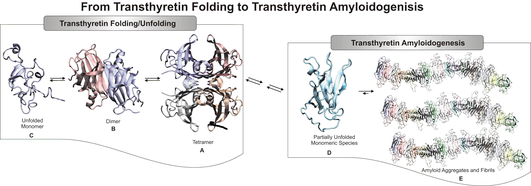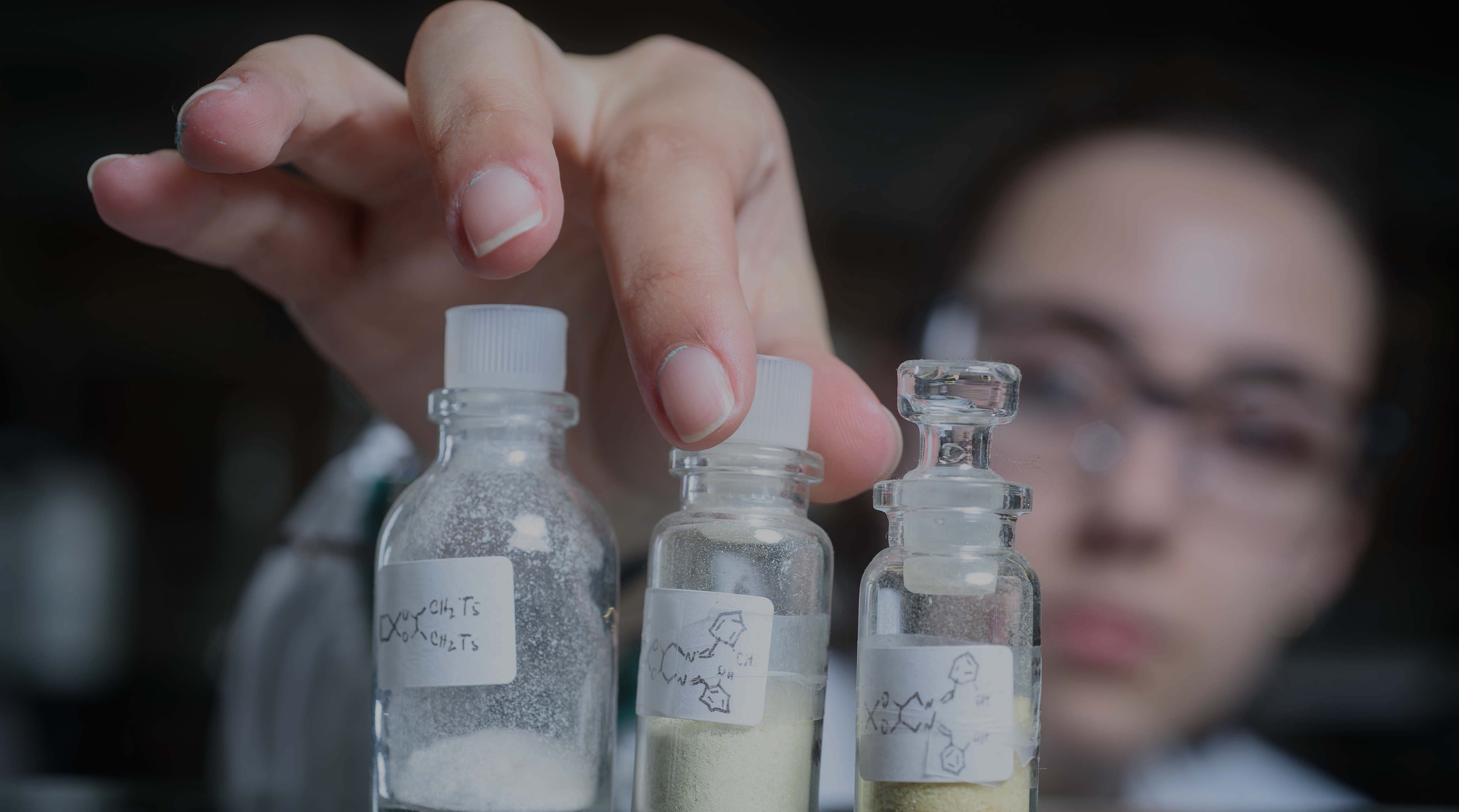
The research team of the Protein Biophysical Chemistry group is formed by biochemists, chemists, molecular biophysicists and bioinformaticians, and has a track record in the fields of NMR (nuclear magnetic resonance), CD (circular dichroism), fluorescence and computer simulations to study protein structure, stability, folding and aggregation, and protein-ligand interactions.
The group is strategically focused on the use of experimental and computational methodologies to study the molecular basis of human and animal disorders, in particular amyloid diseases. Combining the reach of experimental and computational methodologies, the group has been working on the detailed characterization of the molecular species and mechanisms involved on the initial stages of amyloid formation by the protein Transthyretin (TTR), the protein responsible for such pathologies as Familial Amyloid Polyneuropathy (FAP), Familial Amyloid Cardiomyopathy (FAC), and Senile Systemic Amyloidosis (SSA). More recently, and based on the acquired knowledge, a significant effort is being made in the area of virtual screening and rational design of inhibitors of TTR amyloidosis with the goal of developing new therapeutic agents, which the group expects to extend to other amyloid diseases.
Additionally, the group is also working on the structural modelling of viral proteins with the goal of developing new anti-viral agents, in particular against retroviruses.
Research Topics
- Characterization of the molecular mechanisms of amyloid formation by the protein transthyretin
- Rational design of inhibitors of amyloid formation
- Structural modelling of viral proteins and rational design of new anti-viral agents
- Development of new data mining tools for the analysis of multiple protein folding and unfolding simulations.
- Development of a volunteer computing and citizen science platform for the Iberian Peninsula (http://www.ibercivis.net; http://www.socientize.eu)
